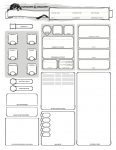That's a common way of playing and, for many, it works just fine. But it can lead to dissatisfaction with D&D 5e as a result since it is at odds with the game's design and you end up with the situations you describe. When someone isn't happy with the system, it's almost always this issue in my experience, being a fundamental process of play. It's basically playing this game as if it's some other game.
See the section on "How to Play" in the introduction of the PHB, plus the section entitled "Ability Checks" in PHB Chapter 7. The DM always calls for the ability check. The player can ask which skill proficiency applies to the ability check, but that's it. See also the DMG, page 237, "Using Ability Scores" and pages 236-237 "The Middle Path."
The idea here is you want your players to describe what they want to do which necessarily includes what they hope to accomplish (goal) and what they do in order to accomplish it (approach). Reasonable specificity is required, but don't fall into the trap of confusing this with being overly verbose or necessitating flowery language or acting chops.
This description by the player will help you to decide whether the outcome is uncertain and, given the situation, whether there's a meaningful consequence for failure. If you decide that both of those things are true, then the approach to the goal will inform you as to what ability score applies, possibly what skill proficiency, what difficulty it is (DC), and whether advantage or disadvantage is appropriate. Without the goal and approach being described by the players, the DM is left with little information with which to adjudicate and many DMs just assume what it is they are doing, often describing what the character is doing for the player. But that's the player's role in the game, not the DM's.



